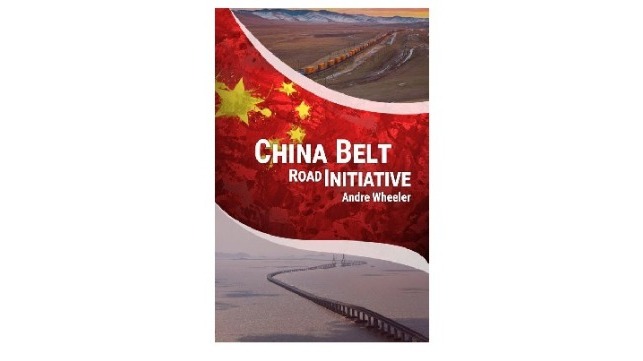Book: China's BRI Challenges Large Container Ship Logistics Paradigm

A newly released book looks at the world's changing logistics paradigm as China builds its One Belt One Road initiative (BRI). The book, by businessman and scholar Andre Wheeler, examines how maritime trade will change as China looks to secure its trade and energy and find a way to bypass the Malacca Straits. Ultimately, this shift is leading the industry away from larger container ships, he says.
China’s Belt Road Initiative: The Challenge For The Middle Kingdom Through A New Logistics Paradigm describes how the BRI is increasingly disrupting the nature of business relationships within Eurasia, prompting the relocation of businesses to improve cost and value advantages.
“In the interests of slashing costs and shipping time, great powers have debated how to bypass the Malacca Straits for over 400 years,” says Wheeler. The idea for a southern Thailand canal arose in 1677 and was revisited again through the centuries, but the British government decided instead on an alternative strategy – to entrench and protect the regional dominance of the port of Singapore.
“Fast forward to today, the Chinese government’s BRI has revived ancient plans for greater connectivity from Asia to Europe,” says Wheeler. “Beyond building point infrastructure like ports and railway stations, the BRI intends to carve out a global logistics and transportation network that connects those regions promising high economic growth with strategic resources.”
Wheeler cites Cosco Shipping Holdings which operates 150 sea-rail container transportation corridors through 100 ports. It took a 51 percent stake in the Greek port of Piraeus and turned what was a “sleepy port” into a key transshipment terminal connecting maritime shipments from Asia to rail and roads leading into more European markets.
“It has shifted away from the dusty old sea freight port-to-port paradigm towards a new model of building ports that connect to hinterland markets with rail serving as 'last and first mile' transportation,” he says. “The massive reduction in time and costs is powering e-commerce and just-in-time manufacturing. While seaborne trade between Europe and Asia slowed in 2018, Piraeus witnessed tremendous growth as China’s maritime gateway to southern Europe, growing from 3.75 million TEUs in 2017 to an anticipated four million TEUs in 2018.”
Wheeler says that while rail will never replace ocean freight, it might lose market share in the transport of high-value goods, as ocean freight may be increasingly restricted to price sensitive commodities such as everyday clothing sold in large discount departmental stores. “As the BRI network becomes more efficient, the need and commercial viability for larger container ships will diminish as the emphasis on regular and speedier deliveries grows with the consumer world moving towards fulfilling 'instant gratification' enabled by improved IoT and technology,” says Wheeler.
Counter initiatives, such as India/Japan’s “Freedom Corridor” add to options for deciding the most effective and efficient logistics modality. These initiatives are seen to be aimed at disrupting China’s growing political and economic influence in the Eurasion region, in particular Asia. It has been said before that whoever controls the “Middle Kingdom” controls the global economy, says Wheeler.
Biography
Andre Wheeler is CEO of Asia Pacific Connex. He has more than 20 years’ experience in international business, and he maintains a diverse network of personal contacts throughout the U.S., Asia, SE Asia, Africa and the U.K. Holding a B.Science (Hons) degree and an MBA, he is currently working towards his Doctorate on the Impact of the China One Belt One Road initiative on infrastructure and logistics in the ASEAN Region.
Author of the book: China’s Belt Road Initiative: The Challenge For The Middle Kingdom Through A New Logistics Paradigm, he has also published and presented a number of papers concerning China’s Belt Road Initiative and the changing Eurasian trade paradigm.
Wheeler has expertise in business development, joint venture negotiations, supply chain management, logistics, marketing and strategic planning.
The book is available here.
